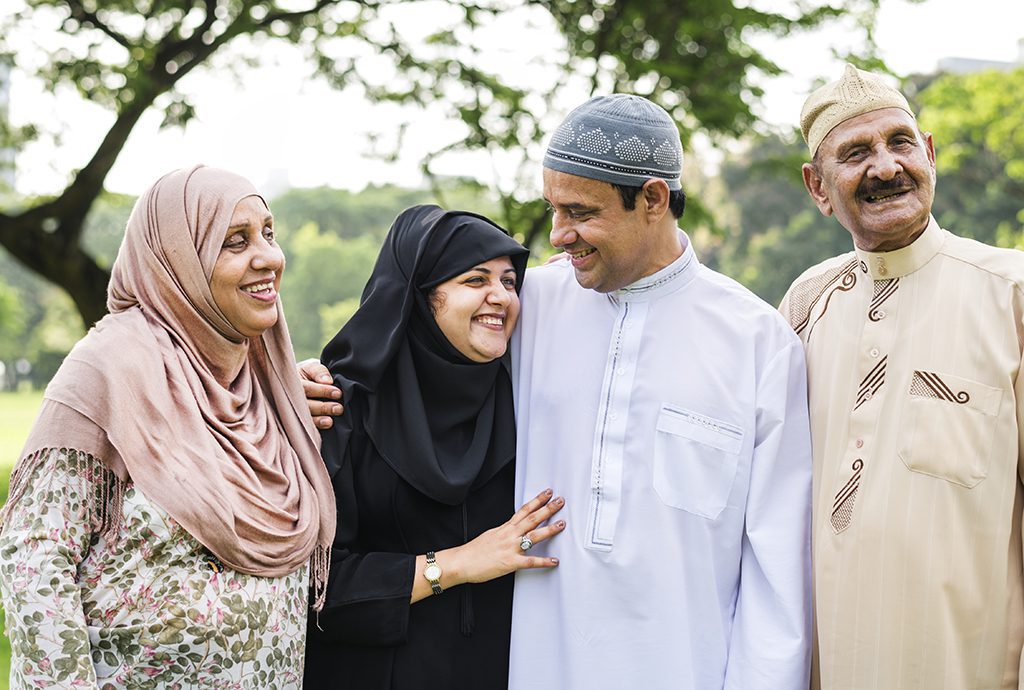Clare’s story: Identifying needs of clients from underserved communities.
Clare is a social prescribing link worker that works within a PCN in a large metropolitan area. She sometimes gets referrals for clients from underserved communities, including, for example, the South Asian community. A challenge that Clare faces when working with underserved communities, is that:
“Dementia doesn’t naturally translate in a lot of languages. There isn’t a word for dementia, so it’s not necessarily understood what it is. It might be seen as people have gone mad. So, sometimes it’s a little bit about helping people to understand what dementia is, because if we don’t talk about it, then it’s not understood”.
She continues that it is key to understand:
“…how culture impacts people’s responses, for example how people do not see themselves as a carer in certain cultures. They’d say – this is what you do for your family”.
Claire also experiences dementia-specific challenges when supporting her clients from underserved communities, including a loss of English language proficiency as a result of cognitive deterioration:
“Somebody may have come here with English as a second language, fulfilled a life, and as we know in dementia journeys, things fall off the bookshelf. So, they’re back in their 20s and they have lost that additional language. So, it’s important to think about how we can effectively communicate when we are support these people”.
To facilitate communication with these clients, Clare has sometimes resorts to interpreters. She suggests:
“…having access to interpreters all the time, even over the phone, although we can book them to come in it if they clients are coming in for face to face.
Clare also finds it very helpful to have:
“…a family member there or having the GP there to be able to help relay that information”.
In the process of assessing clients’ needs from underserved communities, Clare often finds it difficult to discuss whether they want support that is specific to their own community, because that automatically raises sensitive topics, such as asking/discussing clients’ ethnicity or religious affiliation. In her long experience in the community, Clare continues, people can get quite defensive around these topics:
“Sometimes I struggle to bring up the conversation myself, so most times I expect the client to kind of bring it up because you don’t want to cause that kind of conflict from the beginning. During COVID, I supported the vaccine hub, and I was doing the admin side of things. One of the questions was – what is your ethnicity? – and some people were like – I don’t want to answer that, why do I need to answer that? - And it’s the same way of like, you know, if you ask someone what’s your religion – they sometimes say I don’t want to give you that information.
Clare also feels strongly that social prescribers should not assume that because clients belong to a certain community, they will want to engage with support that is exclusive to / specific for that community. This is based on her experience with LGBTQ+ clients and asylum seekers:
“I’ve had people from the LGBTQ+ community that have mentioned it to me and then that’s when I would ask whether they’d want to look for any activities or support from that community. However, I would say it’s like a 50-50. Just from experience 50% of them are willing and happy to engage with community service that are part of their own culture. But 50% of them just say no. With asylum seekers for example it’s because a lot of them are obviously fleeing conflict and trauma, and they don’t have that trust towards their own community sometimes”.
Clare suggests that it is therefore important to keep an open mind and appreciate that many people might not label themselves as one category, as they might see themselves at the intersection of different characteristics/experiences. They might therefore prefer more inclusive support. Clare ultimately suggests that:
“It is about person-centredness, the individual, beyond labels and categories”.

See all social prescribing stories







